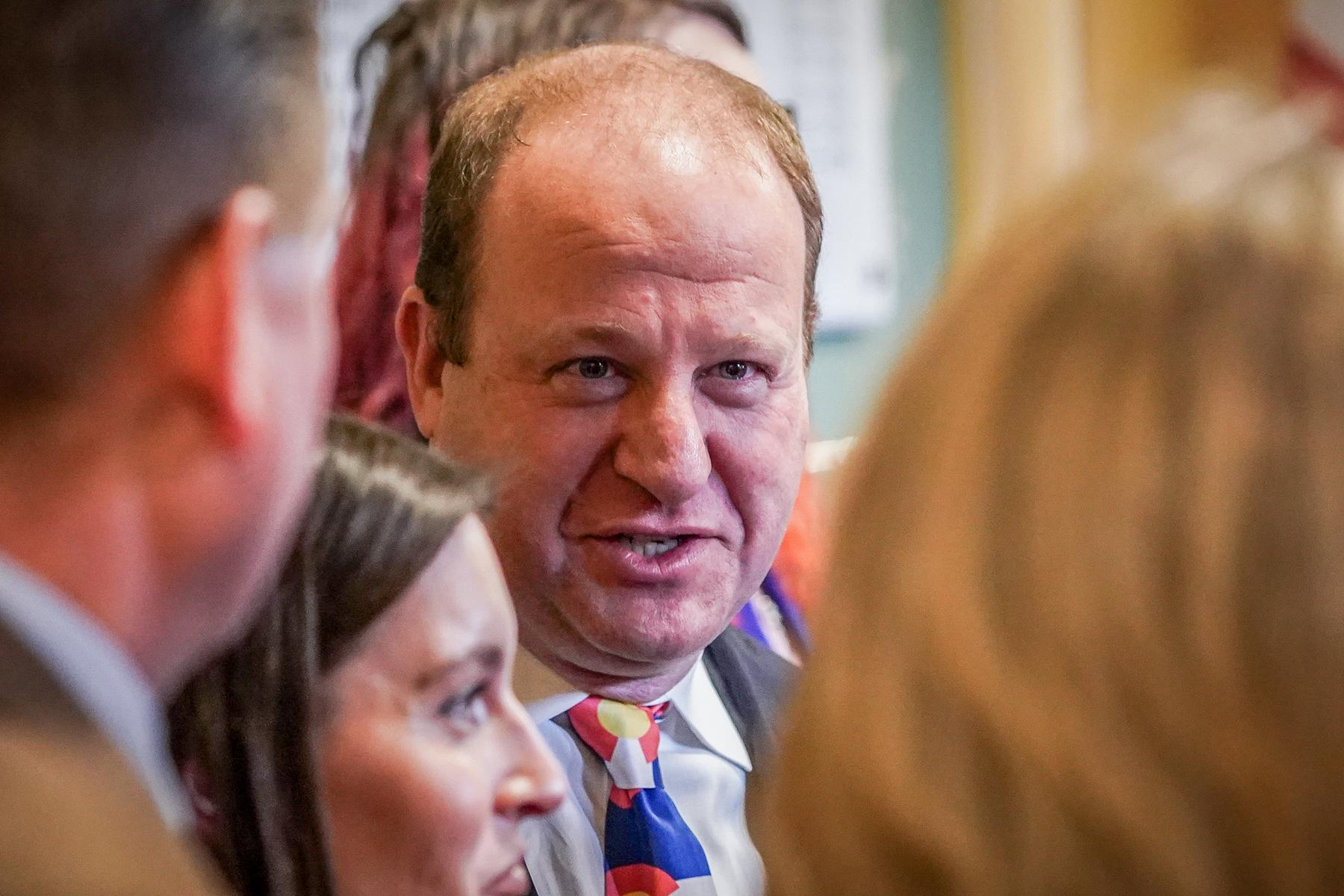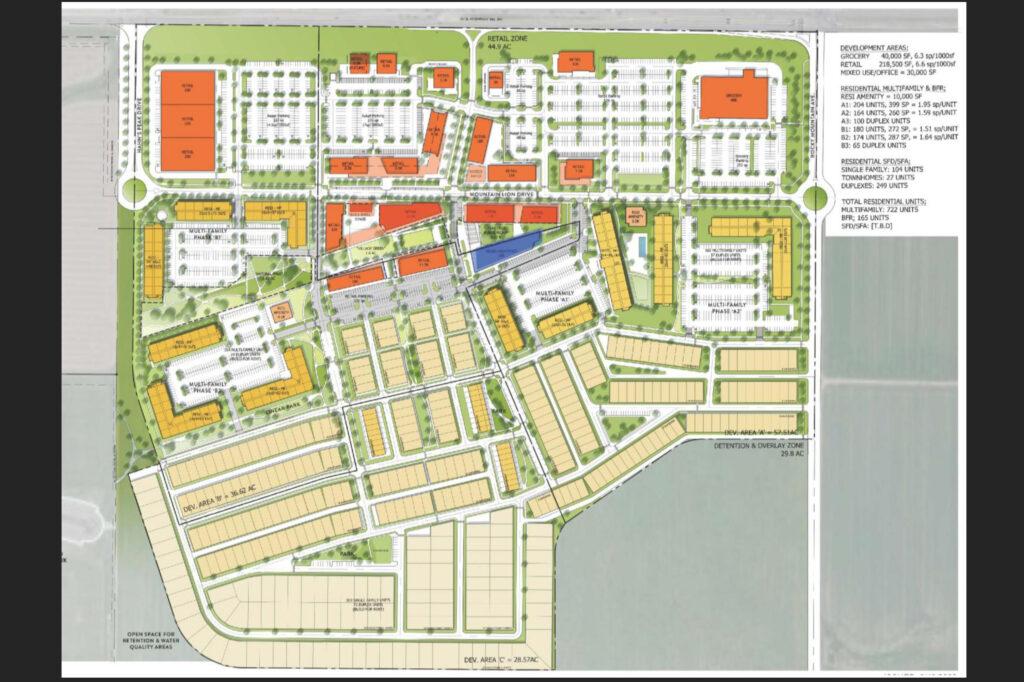
Gov. Jared Polis has vetoed a measure that would have affected a large development plan in Larimer County, along with other potential projects.
“[My] understanding is that this bill was intended to target a single urban renewal plan,” Polis wrote in a veto letter. “Passing a law that retroactively changes the playing field would create greater uncertainty across our state and discourage investment in housing.”
The measure, SB23-273, was inspired by a fight over the Centerra South development plan in Loveland. A majority of the city council supports the plan, but other local leaders — including the mayor and Larimer County commissioners — are more resistant.
The two groups had come into conflict over the financing plan for the project, which would have diverted some of the tax money generated by the project in order to pay for infrastructure on the site.
City officials were OK with the plan to use an urban renewal taxing district, but county officials hadn’t given their approval. Facing an apparent impasse, the developer and the city moved to create the district anyway, without county authority, by using a particular clause within the existing law. Then state lawmakers decided to get involved.

The Democratic sponsors of the bill said they were trying to close a “loophole.” Indeed, state law generally gives the county some authority in situations like this. Specifically, if a developer wants to create an urban renewal district on agricultural land, they often have to get the county’s permission — even if it’s within city limits.
But in this case, the developer and city officials used a particular aspect of the law to proceed without county approval. As written, the law says that county authority is not needed, even when farmland is involved, if the land is already part of an urban renewal area.
As it turns out, the Loveland development site had actually been designated for urban renewal years before as part of an earlier, incomplete development plan by the same developer, Chad McWhinney.
The proposed state law would have closed off that option, saying that land can’t be transferred freely between urban renewal districts without county approval.
State Sen. Janice Marchman, a Democratic sponsor of the bill, said she was “incredibly disappointed” by Polis’ veto of the bill. She and others have argued that counties should retain authority over taxing districts in these situations, since county tax dollars could be used for the projects.
“Local communities like mine depend on property tax and sales tax revenues to fund our schools and maintain our roads and bridges, but right now a loophole is allowing developers to take advantage and earn potentially unlimited tax breaks, robbing us of those critical resources,” she wrote in a statement.
The bill wouldn’t necessarily have affected Centerra South, since Loveland officials approved the financing deal earlier this month. But it would have applied to other land in similar situations, including potentially some 420 additional acres of McWhinney’s land.
The demise of the bill has implications for counties.
They could be forced — via mediation — to participate in the financing plans. In other words, once the development starts generating new tax dollars for the county, the county could have to give some of that money to the urban renewal authority to pay for infrastructure — as the city of Loveland has already agreed to do.
If you’re wondering why state law is so specific about the use of agricultural land in urban renewal areas, there’s a long, controversial history to the topic. Critics, including Loveland Mayor Jacki Marsh, have argued that developers are abusing the “urban renewal” designation to get a discount when they build on former farmland.
Polis said that he would continue to work on the issue, saying there’s a genuine concern: “I appreciate the sponsors and stakeholders for their work on this bill and recognize the legitimate issue regarding the merits of inclusion of agricultural land in urban renewal areas to both preserve agricultural land and prevent continued sprawl,” he wrote.









